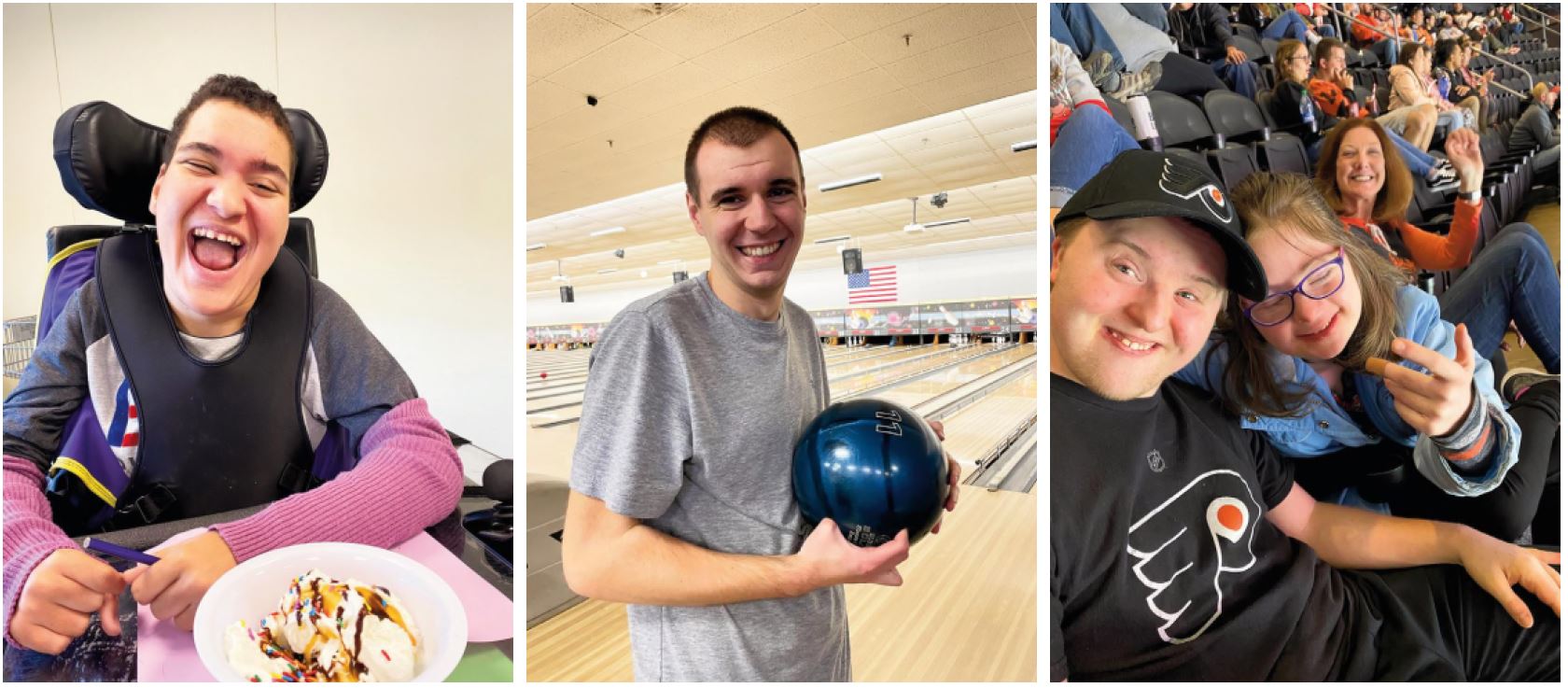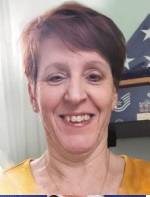
SUMMER SMILES: (Opposite page) Lisa Butler and daughter Sophia share a warm moment; Sophie (above, left) and TNS program participants (middle, right) keeping busy and having fun during the summer months.
ADAPTIVE BOWLING
Make your own ramp with a light piece of wood and an outdoor chair. Lean the piece of wood against the cushion to create the ramp. Purchase a small light weight ball from Walmart, Target, or Five Below. Find one that your child can hold with one hand or that is light enough to gently grip on both sides. Have your child stand behind the chair and push the ball down the ramp.
For a child in a wheelchair, the same ramp can be used but the chair may need to be turned to the side or put the ramp to the left or the right of the wheelchair.
ADAPTIVE BASEBALL
A child may not have the hand-eye coordination to hit the ball that is being thrown to them by a pitcher. Use a road cone as the "pitcher" and place the ball on top of the cone and let the swinging begin! Another adaptation for an athlete who is non-ambulatory or lacks the stamina to run the bases, is having a peer be his/her legs, like a pinch hitter. One person will hit the ball while the other does the running.
BEACH VOLLEYBALL
Instead of using a net, simply throw, you guessed it, a beach ball, high in the air for the kids to catch. Challenge them to count how
many times they can clap before catching it! (Hint: If they have trouble gripping the ball, simply deflate it a bit.) You can probably guess that this game teaches counting and social interaction skills. Catching a ball using both hands, also teaches bilateral integration, a necessary skill for learning tasks such as cutting, buttoning and tying shoes.
GARDENING
Sorry, but did I mention I love gardening? My daughter is a quadriplegic, with very limited control of her arms and legs. She loves to help me in the garden, especially when it comes to watering the plants. It is hard for her to use a standard watering can, so I use a half gallon milk jug to give her the independence to water the garden on her own.
She painted the milk jug while I poked a few holes in the cap. She can grasp the handle as tight as she needs, and the water comes out without her struggling to have her wrist at a specific angle. See, pretty simple.•
ABOUT THE AUTHORS:

Josh Fields has been advocating for people with disabilities since he was in middle school. In 2015, he co-founded The Next Step Programs, a non-profit that aims to break down the barriers that prevent people with disabilities from finding educational and employment opportunities after high school. Now, he serves as CEO of the organization advancing opportunities for all.

Lisa Butler is Program Manager for The Next Step Programs; as well as a United States Air Force Veteran, a professional advocate and an avid gardener. Lisa says her "most important role is as a mother to two children with significantly different needs."
ABOUT THE NEXT STEP PROGRAMS
The Next Step Programs (TNS) was created in 2015 to break down barriers withholding people with disabilities from finding educational and employment opportunities post high school. TNS creates dynamic skill and community building programs for young adults and adults with disabilities. Our community programs focus on bolstering participants skills in: communication, employability, self-advocacy, independent living and teamwork. To learn more, visit tnsprograms.org